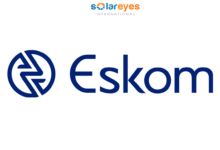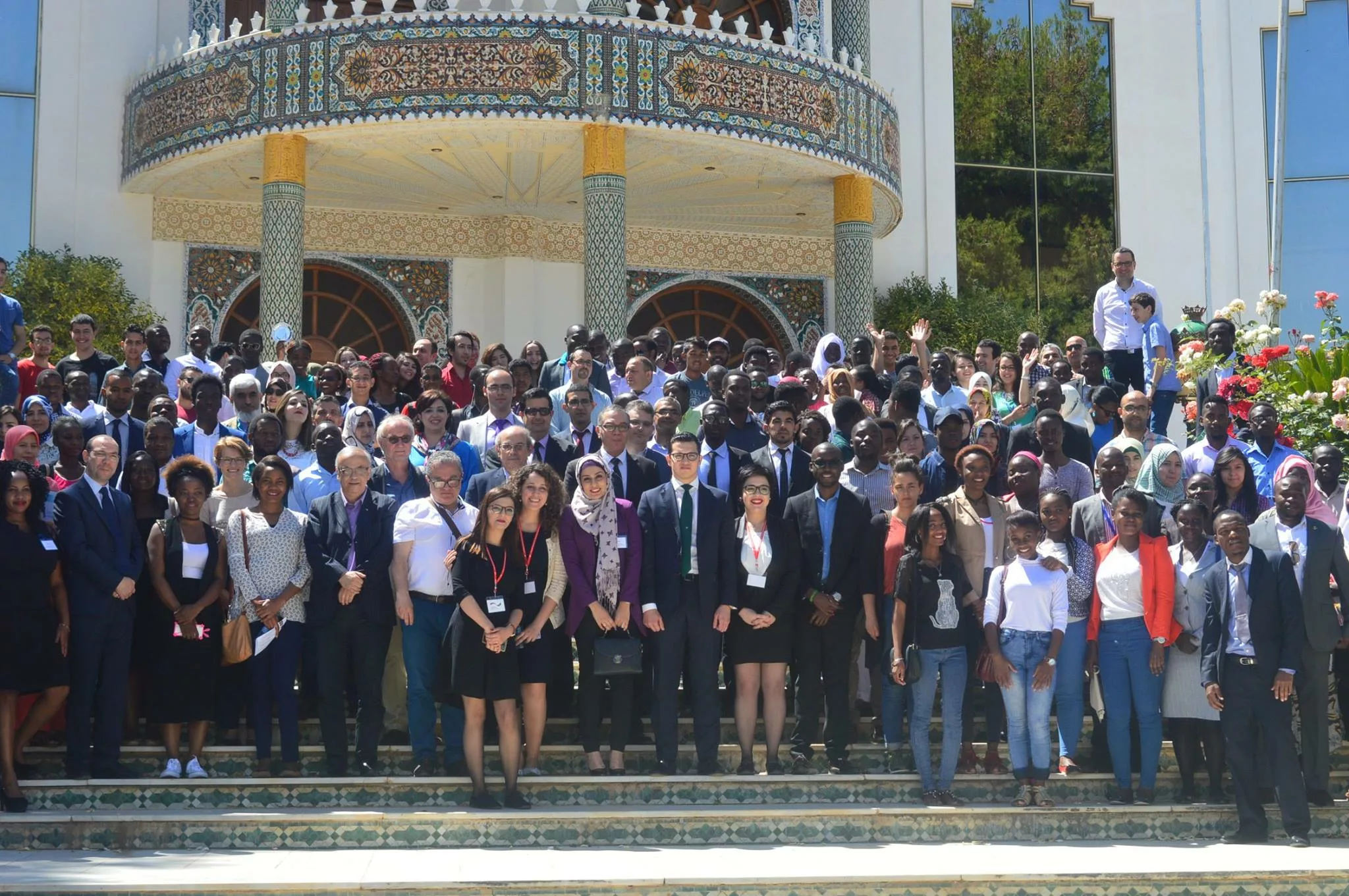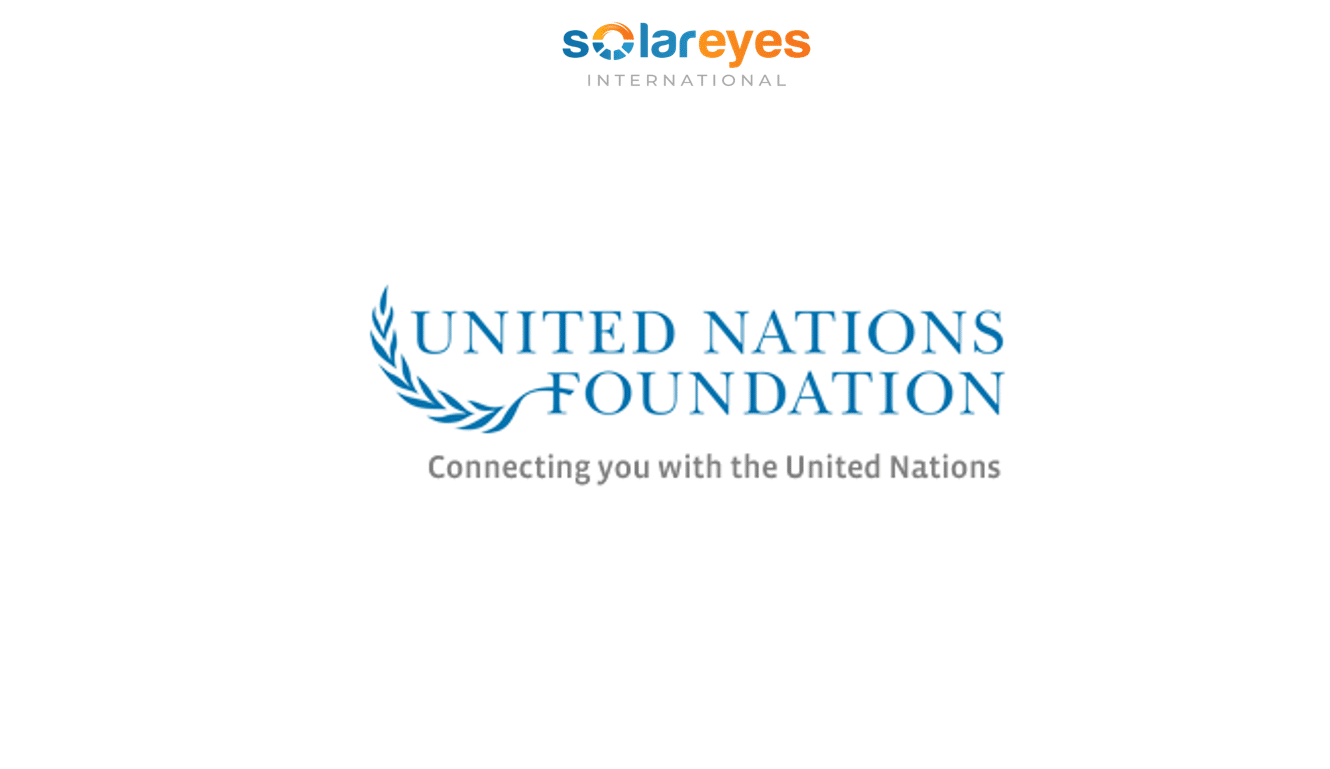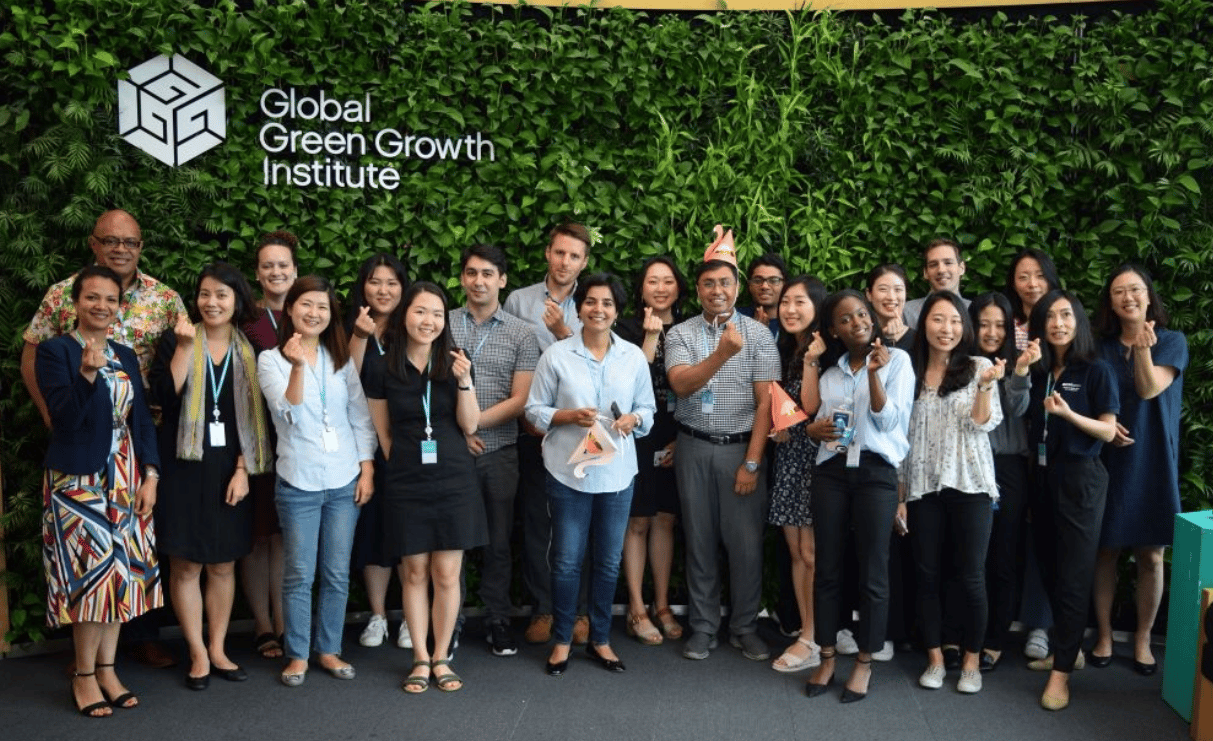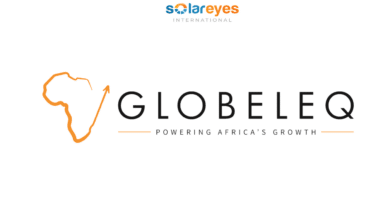Fiduciary Standard Expert for Climate Finance: UNIDO, Home Based
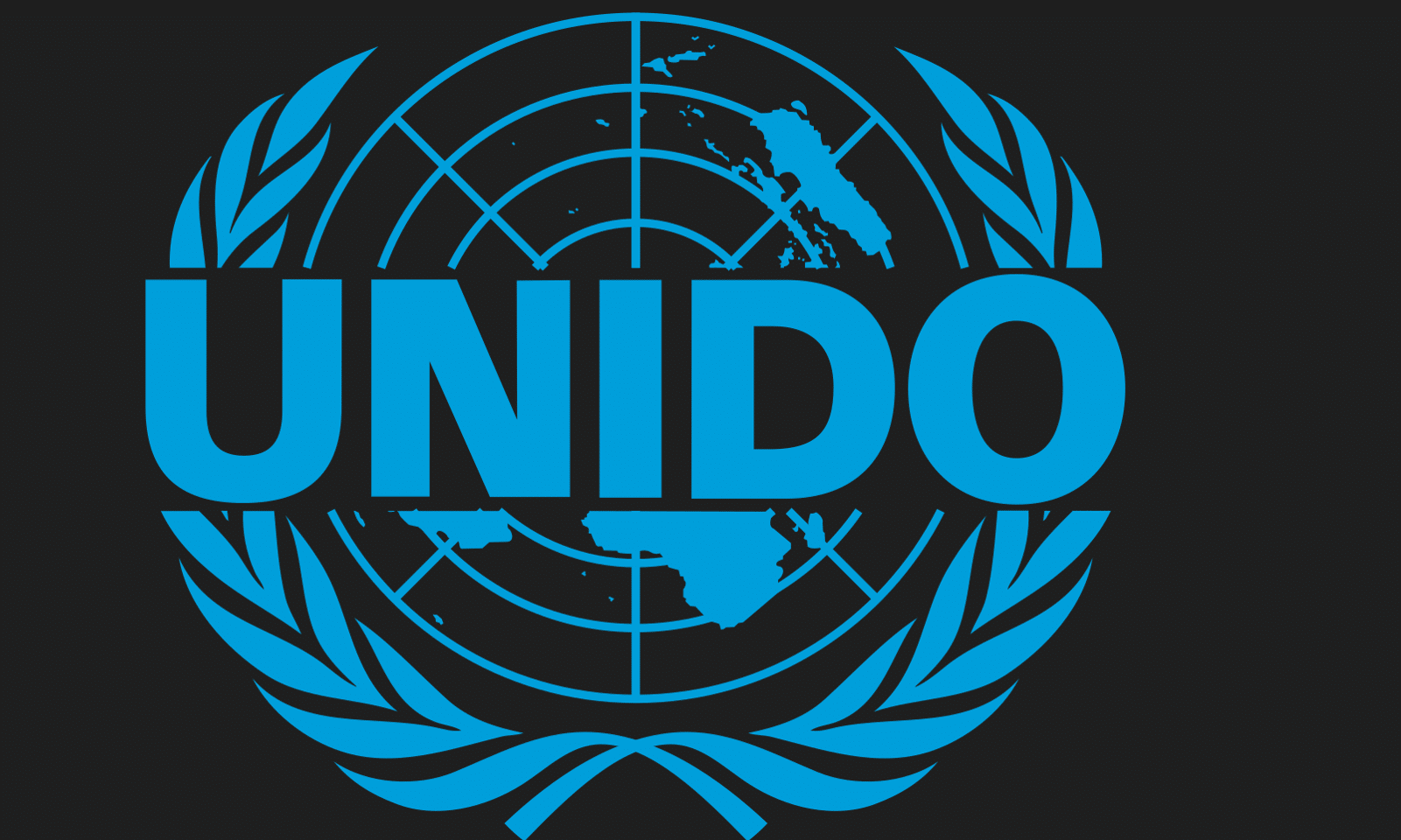
Fiduciary Standard Expert for Climate Finance: UNIDO, Home Based.
Requisition ID: 2490
Grade: ISA-Specialist
Country: Home Based
Duty Station: Home Based
Category: International Consultant
Type of Job Posting: Internal and External
Employment Type: NonStaff-When Act. Employed
Contract Duration: 1 year
Application Deadline: 17-Jul-2023
Fiduciary Standard Expert for Climate Finance: UNIDO, Home Based
Vacancy Announcement
TEMPORARY APPOINTMENT OF PROJECT PERSONNEL
Female candidates are particularly encouraged to apply.
ORGANIZATIONAL CONTEXT
The United Nations Industrial Development Organization (UNIDO) is the specialized agency of the United Nations that promotes industrial development for poverty reduction, inclusive globalization and environmental sustainability. The mission of UNIDO, as described in the Lima Declaration adopted at the fifteenth session of the UNIDO General Conference in 2013 as well as the Abu Dhabi Declaration adopted at the eighteenth session of UNIDO General Conference in 2019, is to promote and accelerate inclusive and sustainable industrial development (ISID) in Member States. The relevance of ISID as an integrated approach to all three pillars of sustainable development is recognized by the 2030 Agenda for Sustainable Development and the related Sustainable Development Goals (SDGs), which will frame United Nations and country efforts towards sustainable development. UNIDO’s mandate is fully recognized in SDG-9, which calls to “Build resilient infrastructure, promote inclusive and sustainable industrialization and foster innovation”. The relevance of ISID, however, applies in greater or lesser extent to all SDGs. Accordingly, the Organization’s programmatic focus is structured in four strategic priorities: Creating shared prosperity; Advancing economic competitiveness; Safeguarding the environment; and Strengthening knowledge and institutions.
Each of these programmatic fields of activity contains a number of individual programmes, which are implemented in a holistic manner to achieve effective outcomes and impacts through UNIDO’s four enabling functions: (i) technical cooperation; (ii) analytical and research functions and policy advisory services; (iii) normative functions and standards and quality-related activities; and (iv) convening and partnerships for knowledge transfer, networking and industrial cooperation. Such core functions are carried out in Departments/Offices in its Headquarters, Regional Offices and Hubs and Country Offices.
The Directorate of Technical Cooperation and Sustainable Industrial Development (TCS), headed by a Managing Director, oversees the Organization’s development of capacities for industrial development as well as industrial policy advice, statistics and research activities and the Organization’s normative contribution to Member States and global development community in achieving the SDGs. The Directorate also ensures the application of strategies and interventions for sustainable industrial development related to Environment, Energy, SMEs, Competitiveness and Job creation, as well as Digitalization and Artificial Intelligence. Through coordination in-house and with Member States and industry stakeholders, it ensures that the services provided in these areas contribute toward effective and appropriate technical, business and policy solutions and are focused on results and on realizing any potential for scaling up and positioning UNIDO as a leading platform for industrial development in developing countries and global fora.
The Directorate houses the technical Divisions of Capacity Development, Industrial Policy Advice and Statistics (TCS/CPS); Circular Economy and Environmental Protection (TCS/CEP); Decarbonization and Sustainable Energy (TCS/DSE); SMEs, Competitiveness and Job Creation (TCS/SME); and Digital Transformation and AI Strategies (TCS/DAS). The Directorate also ensures close coordination and collaboration among the Divisions as well as with relevant entities in the Directorate of Global Partnerships and External Relations (GLO) and the Directorate of SDG Innovation and Economic Transformation (IET).
Top 10 Most Paying Renewable Energy Jobs for 2023: Get yourself a winning profile
The Division of Decarbonization and Sustainable Energy (TCS/DSE) assists Member States in the transition to a sustainable energy future through the application of renewable energy solutions for productive uses, adoption of the efficient concepts of energy use by industry and the introduction of low-carbon technologies and processes. In transitioning to a sustainable energy future, the challenges of addressing energy poverty and climate change are an integral part of the Division’s activities, as is the dissemination of relevant knowledge and technologies and paths to plan, manage and finance the energy transition. It collaborates closely on relevant and converging issues with the Climate and Technology Partnerships Division (IET/CTP) and analytical and strategic matters with TCS/CPS and ODG/SPU.
The position is located under Energy Systems and Decarbonization Unit (TCS/DSE/ESD) which focuses on promoting sustainable energy solutions and infrastructure for industrial development. It promotes industrial decarbonization through crosscutting solutions, such as optimized energy management systems and the deployment of renewable energy technologies. Bringing together the supply and demand side for disruptive energy solutions, both technical and business related, the Unit fosters transformative change on the system level driven by the convergence of key technologies such as distributed generation, digitization and storage. The Unit is also responsible for coordinating dialogues and partnerships at national, regional and global levels to promote disruptive energy solutions and shape policy change for this. Finally, the Unit positions UNIDO strategically in the global energy and climate change forums and coordinates the Global Network of Regional Sustainable Energy Centres and related partnerships.
PROJECT CONTEXT: Fiduciary Standard Expert for Climate Finance: UNIDO, Home Based
Project Title: Building institutional capacity for renewable energy and energy-efficiency investment programme for São Tomé and Principe (SAP ID: 200158)
UNIDO in partnership with the General Directorate for Natural Resources and Energy (DGRNE) of the Ministry of Infrastructure and Natural Resources (MIRNA, formerly MOPIRNA) and the National Designated Authority (NDA) at the Ministry of Planning, Finance and Blue Economy (MPFEA) are implementing the GCF readiness project “Building institutional capacity for a renewable energy and energy efficiency investment programme for São Tomé and Principe”. The project is implemented in close coordination with the ongoing UNIDO GEF project “Strategic program to promote renewable energy and energy efficiency investments in the electricity sector of São Tomé and Príncipe”.
The GCF project follows up on results of the GEF funded interventions. It aims to strengthen the capacities of the Government of Sao Tome and Principe (STP) to formulate and implement a paradigm-shift renewable energy (RE) and energy efficiency (EE) investment program that will enable the country to achieve its climate mitigation targets in the Nationally Determined Contribution (NDC) and the 3rd National Communication on Climate Change (NCCC). Through RE&EE improvements, the country aims at reducing its GHG emissions significantly in comparison to the reference scenario 2012-2030.
All You Need To Know About Solar Fires: Causes and Preventative Measures
The GCF project addresses demand and supply-side barriers, which hinder the market introduction of new sustainable energy technology products, services and business models in STP. These barriers are linked to institutional capacity and coordination, policy and regulation, knowledge and awareness, qualification and certification, entrepreneurship and innovation, and access to finance and technology. The readiness project applies a holistic approach and focuses on a paradigm-shift of the entire energy sector. It builds on past and ongoing readiness activities and will complement and/or upscale existing support and close existing gaps in the sectors ranging from government ministries, private sector, energy producers/consumers and other stakeholders.
The GCF project includes support for RE&EE policy and regulation, knowledge management, capacity building, as well as investment and business facilitation. The focus of renewables lies on specific regulations and practical documents/procedures, which aim to reduce risks for private participation (e.g. IPPs, PPPs, auto-producers) and project finance (equity, concessional and non-concessional finance), particularly in the area of run-off-river micro/small hydro power and solar photovoltaics (PV). Moreover, the support will look into innovative areas such as the application of solar thermal systems in the health, tourism and industrial sector, energy storage and smart grids, as well as ocean energy technologies in the context of the blue economy. The activities in the energy efficiency sector focus particularly on energy efficiency standards for appliances and transport, as well as efficient cooking.
The GCF project is also strengthening the technical and institutional capacities of DGRNE/MIRNA to become an implementing entity for international climate finance in the energy sector. In this context, UNIDO supports DGRNE/MIRNA to become a Delivery Partner for GCF Readiness activities. The activity requires the completion and submission of the GCF Financial Management Capacity Assessment (FMCA) form and a due diligence process. To accompany DGRNE/MIRNA throughout the process, UNIDO is seeking advisory support by a Fiduciary Standard Expert (FSE).
Further information on the GEF/GCF Projects are available at https://dgrne.org, and https://open.unido.org/projects/ST/projects/200158.
FUNCTIONAL RESPONSIBILITIES: Fiduciary Standard Expert for Climate Finance: UNIDO, Home Based
In close partnership with UNIDO, the FSE will assist the DGRNE/MIRNA in strengthening the GCF compliance of its current management and policy framework, the finalisation of the FMCE form and the provision of capacity building throughout the process. Further information on the GCF requirements are available in the GCF Readiness and Preparatory Support Guidebook, the FMCA form, and the initial fiduciary principles and standards document. The FSE will be supported by a local team of UNIDO contracted experts in DGRNE and the NDA. The working language of the assignment will be Portuguese but certain documents need to be translated into English by the FSE.
The FSE can base his/her work on the already undertaken UNIDO micro-assessment on the compliance of the DGRNE/MIRNA operations with the Harmonized Approach to Cash Transfers (HACT) framework. The HACT framework represents a common operational framework for UN agencies’ transfer of cash to government and non-governmental executing partners. The micro assessment of DGRNE provided an overall assessment of its programme, financial and operations management policies, procedures, systems and internal controls. The KPMG report will be made available during the inception phase of the assignment. Specifically, the FSE will have the following duties and responsibilities:
| MAIN DUTIES | Concrete/measurable Outputs to be achieved | Expected duration | Location |
| 1. Inception phaseBefore the expert starts with the implementation of the assignment, he/she will develop a work plan, including detailed time-line and training schedule, subject to the approval of UNIDO HQ, NDA and DGRNE. The expert will arrange at least two (2) inception meetings by online means. | Deliverables:– Approved work plan incl. annexes in Portuguese- Minutes of inception meetings in Portuguese | 3 Working Days | Home-based |
| 2. Strengthen the management framework of DGRNE/MIRNA to deliver GCF readiness and complete the FMCA formIn line with the requirements of the FMCA form, the expert will assess the institutional capacity of DGRNE/MIRNA to implement readiness activities and manage funding in line with the fiduciary standards of GCF, initial and/or specialized standards The assessment report will include specific information regarding the existing legal framework and status, organizational structure and culture, financial management, procurement, anti-money laundering and counter terrorist financing due diligence, project management and gender mainstreaming. The assessment will complement the findings and recommendations of the executed UNIDO micro capacity assessment on DGRNE/MIRNA (report of KPMG available). Based on the findings, the expert will establish a list of policies and documents to be improved or developed under the assignment.Based on the assessment and the FMCA form, the expert will identify gaps in the current policy and fiduciary framework of DGRNE/MIRNA and will update existing policies and documents. In case required, the expert will develop new ones in line with the GCF requirements and based on the initial assessments. The documents will be reviewed by a technical committee to be established within the Ministry and UNIDO finance and procurement experts. The scope of work might require work on various existing policies and documents. The expert will also take into account requirements of other potential climate finance entities (e.g. GEF, Adaptation Fund).In close coordination with the national counterparts, the expert will fill the FMCA form and attach the required documents and annexes. Moreover, the expert will help to update the questionnaire, clarify questions and complete the documentation based on received comments by the GCF after submission. The FMCA form shall be completed and handed over to UNIDO and DGRNE in fully edited form, including all required attachments. | Deliverables:– Assessment report, including identified gaps in the existing institutional framework in Portuguese and translated to English.- List of policies and documents to be improved or developed.- Updated or newly developed policies and documents in line with GCF fiduciary standards.- Fully edited FMCA form, including required documentation, ready to be submitted by UNIDO/DGRNE to the GCF in Portuguese and English. | 73 Working Days | Home-based and partly in STP |
| 3. Capacity building on management frameworks and fiduciary standardsEach step of the assignment will include learning-by-doing elements for the local team at DGRNE and NDA. The expert will involve the local staff in all steps of the assignment, including the assessment report of institutional capacities, the amendment of existing policies and documents, as well as the finalisation of the FMCA form. Ideally, the expert works for one or two months under the assignment from the DGRNE/MIRNA in Sao Tome. A workspace can be made available.In addition, the expert will develop a gender-sensitive training plan for the team in DGRNE/NDA on fiduciary standards and the GCF Readiness requirements. The project team in UNIDO HQs will support the efforts of the expert by introducing into the GCF Readiness Guidebook and practical experiences with GCF Readiness implementation.The expert will develop a set of training materials in Portuguese on GCF fiduciary standards and requirements, policies and documents, including on legal, procurement, financial management, anti-money laundering and counter terrorist financing, project management and gender issues. The materials will also include a specific session on project management basics and quality frameworks.Apart from ad-hoc training sessions, the expert will implement at least four (4) major one-day trainings under the assignment either on-site or by online means for selected experts of DGRNE, NDA, AFAP and other institutions in Portuguese. At least one (1) training will focus on project management skills. The expert will pay particular attention to incentivise the participation of female experts in the trainings. | Deliverables:– Training plan, including gender considerations.- Training materials in Portuguese.- Concept notes on training workshops, signed list of attendees and feedback surveys , including gender and youth disaggregated data.- Training power points. | 50 Working Days | Home-based and partly in STP |
| TOTAL | 126 Working Days | ||
REQUIRED COMPETENCIES: Fiduciary Standard Expert for Climate Finance: UNIDO, Home Based
Core Values
WE LIVE AND ACT WITH INTEGRITY: work honestly, openly and impartially.
WE SHOW PROFESSIONALISM: work hard, competently in a committed and responsible manner.
WE RESPECT DIVERSITY: work together effectively, respectfully and inclusively, regardless of our differences in culture and perspective.
Key Competencies
WE FOCUS ON PEOPLE: cooperate to fully reach our potential – and this is true for our colleagues as well as our clients. Emotional intelligence and receptiveness are vital parts of our UNIDO identity.
WE FOCUS ON RESULTS AND RESPONSIBILITIES: focus on planning, organizing and managing our work effectively and efficiently. We are responsible and accountable for achieving our results and meeting our performance standards. This accountability does not end with our colleagues and supervisors, but we also owe it to those we serve and who have trusted us to contribute to a better, safer and healthier world.
Perovskite solar-cells: Revolutionizing the future of solar technology
WE COMMUNICATE AND EARN TRUST: communicate effectively with one another and build an environment of trust where we can all excel in our work.
WE THINK OUTSIDE THE BOX AND INNOVATE: To stay relevant, we continuously improve, support innovation, share our knowledge and skills, and learn from one another.
MINIMUM ORGANIZATIONAL REQUIREMENTS: Fiduciary Standard Expert for Climate Finance: UNIDO, Home Based
Education:
Advanced university degree (completed Master’s degree or higher) in business administration, finance, economics, law, climate finance or any other relevant discipline is required.
Technical and Functional Experience:
- A minimum of five (5) years of practical work experience on matters related to public administration, procurement, finance and project management is required.
- Proven knowledge of fiduciary standards and their practical implementation is required.
- Experience in developing rules and procedures related to institutional policies, procurement, finance is an asset.
- Experience in the provision of trainings on fiduciary standards is desirable.
- Experience in dealing with institutions in lusophone African countries is desirable.
- Experience in supporting entities in the GCF accreditation processes is an asset.
Languages:
Written and oral fluency in Portuguese is required. Working knowledge of English is required.In case the expert has not sufficient English writing skills, he/she can also work together with a colleague/partner on the translation of document in English. For the latter, UNIDO will not pay extra-fees.
This appointment is limited to the specified project(s) only and does not carry any expectation of renewal.
Employees of UNIDO are expected at all times to uphold the highest standards of integrity, professionalism and respect for diversity, both at work and outside.
Only persons who fully and unconditionally commit to these values should consider applying for jobs at UNIDO.
All applications must be submitted online through the Online Recruitment System. Correspondence will be undertaken only with candidates who are being considered at an advanced phase of the selection process. Selected candidate(s) may be required to disclose to the Director General the nature and scope of financial and other personal interests and assets in respect of themselves, their spouses and dependents, under the procedures established by the Director General.
Visit the UNIDO website for details on how to apply: www.unido.org
NOTE: The Director General retains the discretion to make an appointment to this post at a lower level.
FOLLOW US ON SOCIAL MEDIA
Follow us on LINKEDIN, FACEBOOK, TELEGRAM GROUP and WHATSAPP.
*** ALSO CHECK: HOW TO SIZE A SOLAR SYSTEM – 5 clear steps anyone can follow
HOW TO START A SOLAR COMPANY – do these 6 things and make money through solar
How to Identify Fake Solar Products
SOLAR PANEL LOSSES: All you Need to Know + Tips on how to avoid them

